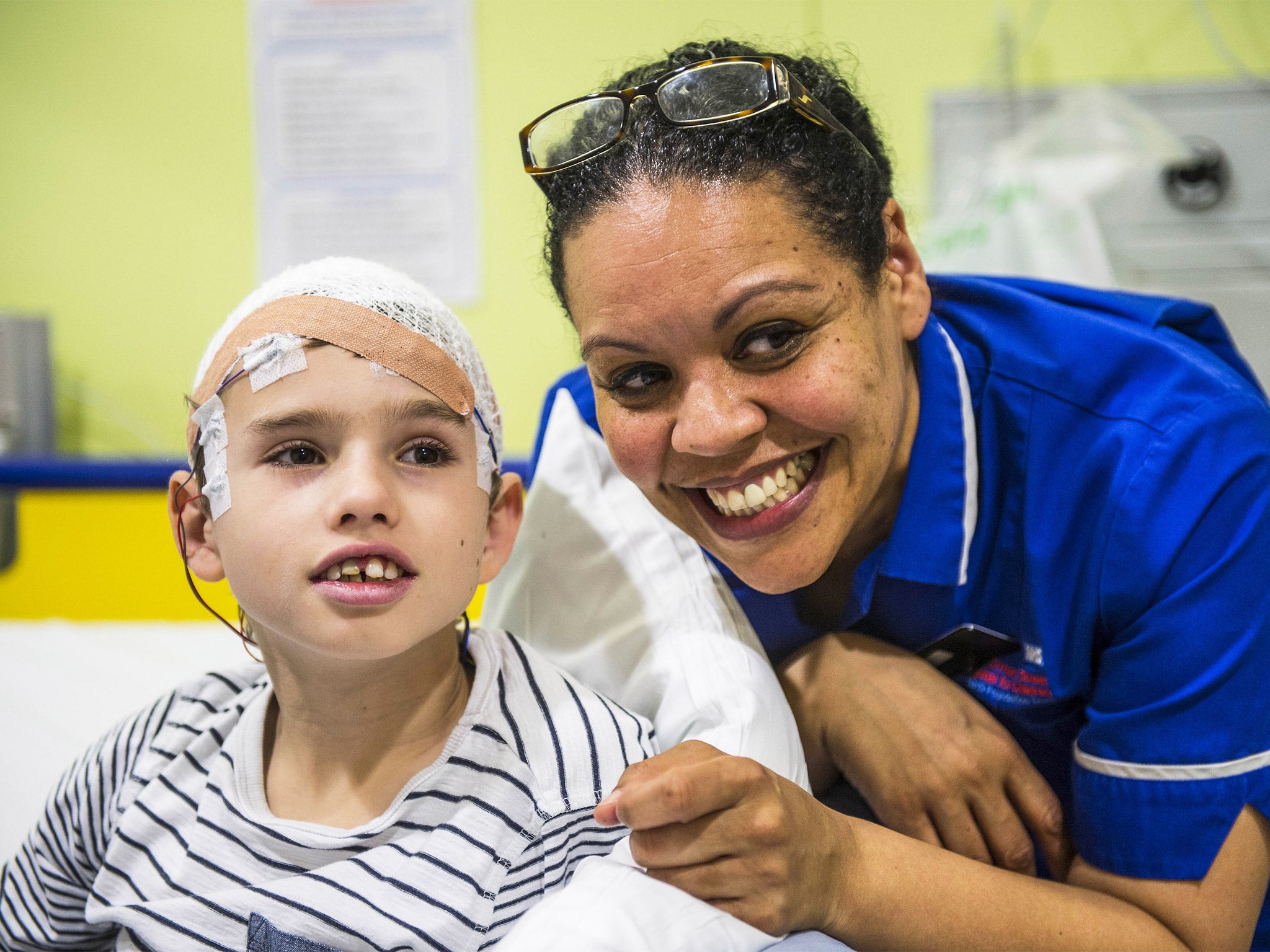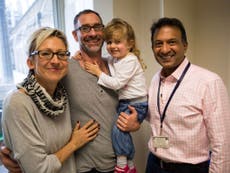Ward sister Melissa Strickland reveals the qualities needed by a nurse at Great Ormond Street Hospital
'You can’t stop yourself being upset – if you stop being upset that’s when you have to stop doing the job'

By lunchtime Melissa Strickland has seen every child on Koala Ward, found beds for new patients and reassured a string of worried patients.
She is a ward sister at Great Ormond Street Hospital (GOSH) and since 7.30am, when she started her shift, she has been responsible for children being treated for epilepsy, complex craniofacial syndromes, neuromuscular disorders and spinal cord abnormalities.
“The resilience of children is spectacular. I never ever, ever get bored here. There is always a challenge and it sounds really mushy but it’s very healing working here,” she says.
“You see another side of life. When you go home you see people rushing to get on the Tube being grumpy about their bit of space, but there’s another side to life.”
The 48-year-old has worked at the hospital for 20 years and The Independent’s Give to GOSH campaign has been following her since November. Over Christmas, she told how she prepared Koala Ward and its patients for the festive period, adding: “The campaign makes a big difference with research and equipment. It also funds play specialists, and in a children’s hospital I cannot imagine what it would be like without them. We couldn’t manage without them.”
The Independent has followed Melissa’s working day to give an idea of what life is like on Koala Ward. Her day starts with a handover from the night team, when Melissa gets a briefing on each of the 24 children on the ward, which is currently operating at full capacity.
The day starts with an emotional moment, when Melissa hears that the parents of a seriously ill child have spoken about their child’s shortened lifespan for the first time. Other updates are less challenging, such as a little girl who is “quite feisty this morning”, and is telling nurses to go away, which they take as a good sign.
After the meeting Melissa starts her ward round, but she’s already spoken to many of the patients. She turned up early this morning to meet her patients, some of whom are suffering from epilepsy and can have 100 seizures a day.
One such patient is 11-year-old Henry Green on the “telemetry” ward. He has had several seizures and will be in GOSH for a week being monitored to find out if he is eligible for surgery to improve his epilepsy. Across the corridor a team of neurophysiologists watch live footage of him as he sits on his bed, and they analyse his brain activity.
Speaking about the resilience nurses need to carry out their job, Melissa says: “You can’t stop yourself being upset. If you stop being upset that’s when you have to stop doing the job. But we are in control of our emotions and we don’t sob over people.
“Sometimes you show you have had tears in your eyes and that’s not a bad thing. You have to have empathy otherwise you shouldn’t do the job.”
Throughout the morning teams of doctors from the neurosurgery, neurology, craniofacial, telemetry and ophthalmology departments carry out ward rounds and check on their patients. The ward is full but there are four children waiting to be admitted from elsewhere at GOSH and from other hospitals. Melissa spends much of her time speaking to the hospital’s bed manager and other ward managers trying to juggle beds for patients.
It is already one of the busiest neurosurgery wards in the country and the biggest centre for epileptic neurosurgery in the country, as well as being the largest centre for children needing brain surgery, but it is set to grow next year with the addition of eight beds.
At midday she has a bed meeting – she often skips lunch – and by 4pm when it is time for her to leave the hospital the pedometer on her phone shows she has taken 20,000 steps. It’s the emotional toll that is more keenly felt, though.


Join our commenting forum
Join thought-provoking conversations, follow other Independent readers and see their replies